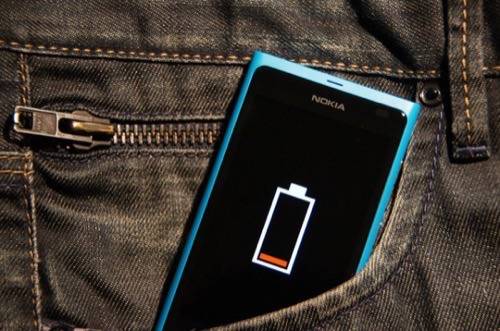Google has a small set of engineers trying to crack the tech world’s battery problem, the Wall Street Journal reports. Housed within the Google X lab, the four-member team—reportedly under the direction of former Apple battery master Ramesh Bhardwaj—has a lot riding on it.
Google has numerous battery-dependent projects covering a broad range of existing and emerging technologies. If its team can succeed with a new Google-made power cell, the result could go a long way to advance those initiatives—as well as everyone else’s.
Google’s Power Rangers
Reportedly, Bhardwaj’s team at Google X wants to make existing battery technology smaller and more power efficient. At NAATBaat International in February, Bhardwaj talked about the advantages of solid-state, thin-film batteries.
Such breakthroughs could accelerate several Google initiatives—such as Google Glass. Now in charge of the face gear project, Nest CEO Tony Fadell (who has worked for Google since it acquired Nest last year) took the much-maligned Glass back to the drawing board for a redesign in January. One of the face gear’s biggest problems was its paltry battery life. A smaller, more efficient battery could give the device more longevity, while giving designers more room to improve the design. (In other words, it could become more functional and less stupid-looking.) Google’s electric, autonomous car could also easily reap the benefits of a smarter battery.

Advancements in battery technology could help Google build stronger ties with hardware makers for Android and Android Wear, as well. As it stands, most smartphones and smartwatches have about a day’s worth of battery life, give or take a few hours depending on the device. If Google could offer phone and smartwatch makers more efficient power cells, plus the software support to take maximum advantage of them, those platforms could have a major new selling point beyond merely being Apple alternatives.
As we’ve seen over the last few months, Google’s relationship with its hardware partners appears to be on shaky ground. Despite the availability of Google-made operating systems for wearables, smart TVs and car dashboards, LG and Samsung are using their own software alternatives. HTC may be getting in on the act, too, with rumors swirling about HTC’s automotive ambitions. A Google-developed super battery could be a solid way to bring partners back into the fold.
However, Bhardwaj’s team will need to move fast if it hopes to gain an edge. Tesla is expected to announce its own battery initiative by the end of April, and Apple is constantly refining its own battery technology. Whoever reinvents the battery could figuratively and literally have power over the entire tech industry.
Lead image courtesy of Google; Nokia battery image courtesy of Nokia

















